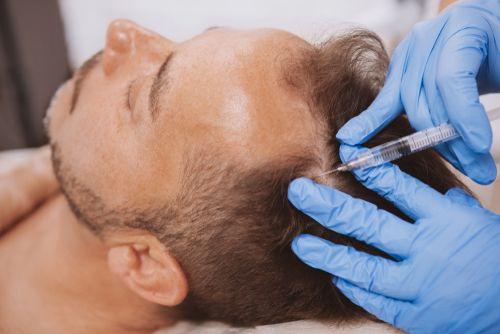
Surgical Hair Loss: Facing The Bald Truth
- Jun 14, 2025
Did you know that although grandmother's heart surgery might be successful, she could end up losing strands of those beautiful silver locks in the process? Yes, you read that right. After surgery, hair loss is quite a common but often under-discussed side-effect. Over-stressing the thought of going under the knife, mixed in with some nutritional deficiencies linked to post-surgery appetite loss, often results in folks bidding a temporary farewell to their crowning glory.
Ever heard of Telogen effluvium? It's like the most common mean girl among hair loss causes related to surgery. It steps into the game when your hair follicles decide to take a sudden siesta, contributing to sudden shedding or falling out of hair. The good news? This unexpected hair-loss party often calms down a few months post-surgery, with hair grow back party starting up a year later.
And to add some spice, there's alopecia areata (AA), an autoimmune troublemaker that can be ignited by the general anesthesia during surgery, leading to spotty hair loss. Now, don't drop your jaw just yet - there are plenty of treatment options to tackle this beast and reclaim your shining mane.
Let me be your guru for post-surgery hair peace. Strap on your seatbelts and follow postoperative instructions and general health practices like they're your holy scripture. If your hair loss scenario feels like it's auditioning for a horror movie, consider knocking on the doors of a healthcare provider, say a dermatologist. These skin gurus can often recommend lifestyle changes, medications or some kind of mysterious in-office procedure.
How about some strategies to regrow hair after surgery? From an early revival of your love affair with nourishing food to stress management and allowing your body to recover naturally, there's a buffet of options to choose from. Now remember, kids, if the hair loss dog and pony show is going on for longer than six months and bald spots are turning into unattractive landscapes, this could potentially be a permanent goodbye. That's your cue to bring in the medical cavalry for a thorough check-up.
One more pearl of wisdom: Plan, communicate and prevent. Ask your surgical care team about ways to prevent hair loss during your presurgical consultation. Keep those scare tactics at bay and always consult a healthcare provider before guzzling down vitamins and supplements to prevent unpleasant surprises.
Despite all of this, remember, temporary hair loss after surgery is considered normal and is not a definitive sign of impending doom. Yet, if hair loss begins to resemble a thinning Amazon forest or continues to fall out with no sign of revival within six months, it's time to get professional help.
From the face of it, hair loss after operations is more complex than it seems. So, while you're busy preparing for that upcoming appendix removal, don't forget to educate yourself about how to keep your hair from fleeing the scene too.






